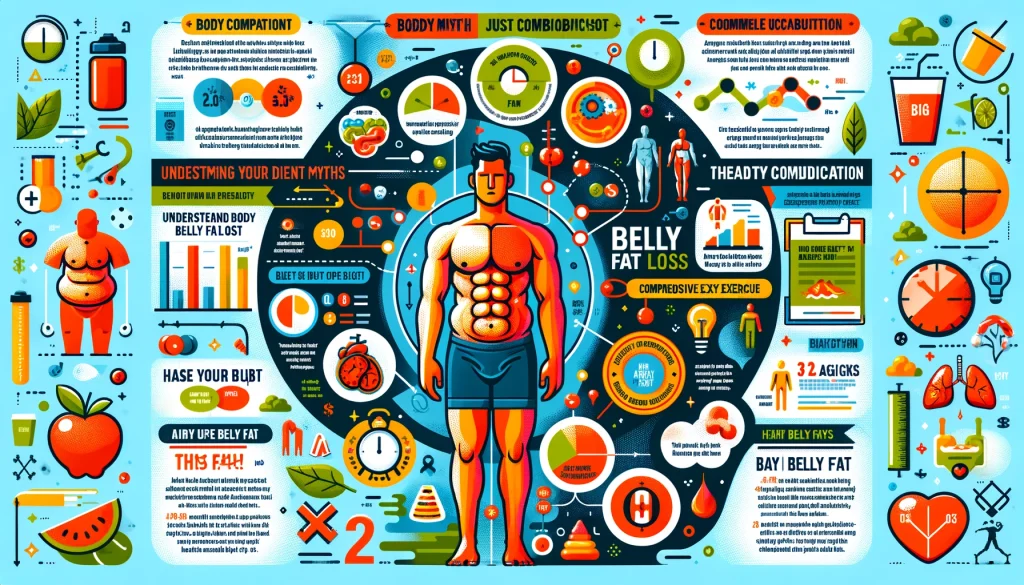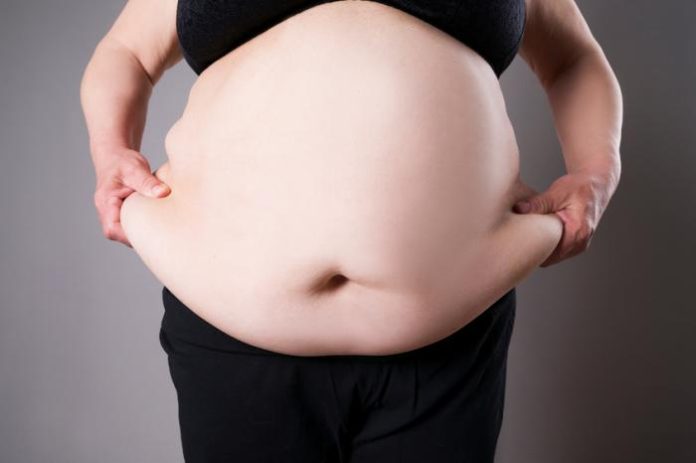Thin People Are Safe
Many assume that a slim physique equates to good health, but the concept of “skinny fat” challenges this notion. Skinny fat individuals, though appearing lean, may have a high percentage of body fat, particularly visceral fat, which is stored within the abdominal cavity and surrounds vital organs. This can significantly increase the risk of metabolic syndromes such as type 2 diabetes and heart disease. Understanding body composition, rather than just body weight, is crucial for assessing health risks accurately.
Inevitability of Belly Fat with Age
While it’s true that hormonal changes and a natural decline in metabolism occur with age, leading to changes in body composition, the accumulation of belly fat is not inevitable. Lifestyle choices, including diet, physical activity, and stress management, play a pivotal role in determining one’s body fat distribution. By maintaining a healthy lifestyle, individuals can combat the age-related predisposition to accumulate belly fat.
A Calorie is Just a Calorie
The calorie content of food does not tell the whole story. Different foods have different effects on our bodies, influencing everything from our metabolic rate to our hormonal response. Foods high in protein and fiber, for example, can increase satiety and reduce overall calorie intake, while foods high in refined sugars can lead to spikes in insulin and increase fat storage. Understanding the nutritional value and the physiological impacts of foods is more beneficial than simply counting calories.
Eating Fat Leads to Belly Fat
The misconception that consuming dietary fat directly leads to an increase in body fat is outdated. Dietary fats are essential for various bodily functions, including hormone production and nutrient absorption. The key is to focus on healthy fats, such as those found in avocados, nuts, and olive oil, which can actually help with weight management and support metabolic health.
Low-Fat Diets Are Effective for Losing Belly Fat
Low-fat diets have been popular for decades, but they often lead to increased consumption of processed foods high in sugar and refined carbohydrates, which can contribute to weight gain and metabolic issues. A balanced diet that includes a moderate amount of healthy fats can be more effective for long-term weight management and overall health.
Carbohydrates Are Universally Bad
Carbohydrates have been unjustly vilified in the diet culture. It’s essential to distinguish between simple carbs, like sugary snacks and white bread, and complex carbs, such as whole grains, legumes, and vegetables, which provide energy and nutrients. Incorporating the right kind of carbs into your diet can support healthy weight management and provide the body with necessary fuel.
Boring Foods Are Necessary for Losing Belly Fat
Sustainable weight loss does not require sacrificing flavor. The misconception that healthy eating is synonymous with bland and unappetizing foods is a barrier to long-term success. A diet rich in spices, herbs, and a variety of nutrient-dense foods can be both satisfying and effective for losing belly fat.

Vegan or Carnivore Diets Are the Best for Losing Belly Fat
There’s no one-size-fits-all approach to dieting. While some may find success with vegan or carnivore diets, these extremes are not necessary for everyone. A balanced diet that includes a variety of whole foods from all food groups is generally the most sustainable and healthful approach for most people.
Abdominal Exercises Are Key to Losing Belly Fat
The concept of spot reduction, or the idea that fat can be targeted for reduction from a specific area of the body through exercise, is a myth. A comprehensive fitness routine that includes strength training, cardiovascular exercise, and flexibility work, combined with a healthy diet, is the most effective way to reduce overall body fat, including belly fat.
Cardio Is Essential for Losing Belly Fat
Cardiovascular exercise is important for heart health and can contribute to a caloric deficit, but it’s not the only or even the most effective method for losing belly fat. Incorporating strength training can increase muscle mass, which in turn can boost metabolism and help the body burn more calories at rest.

